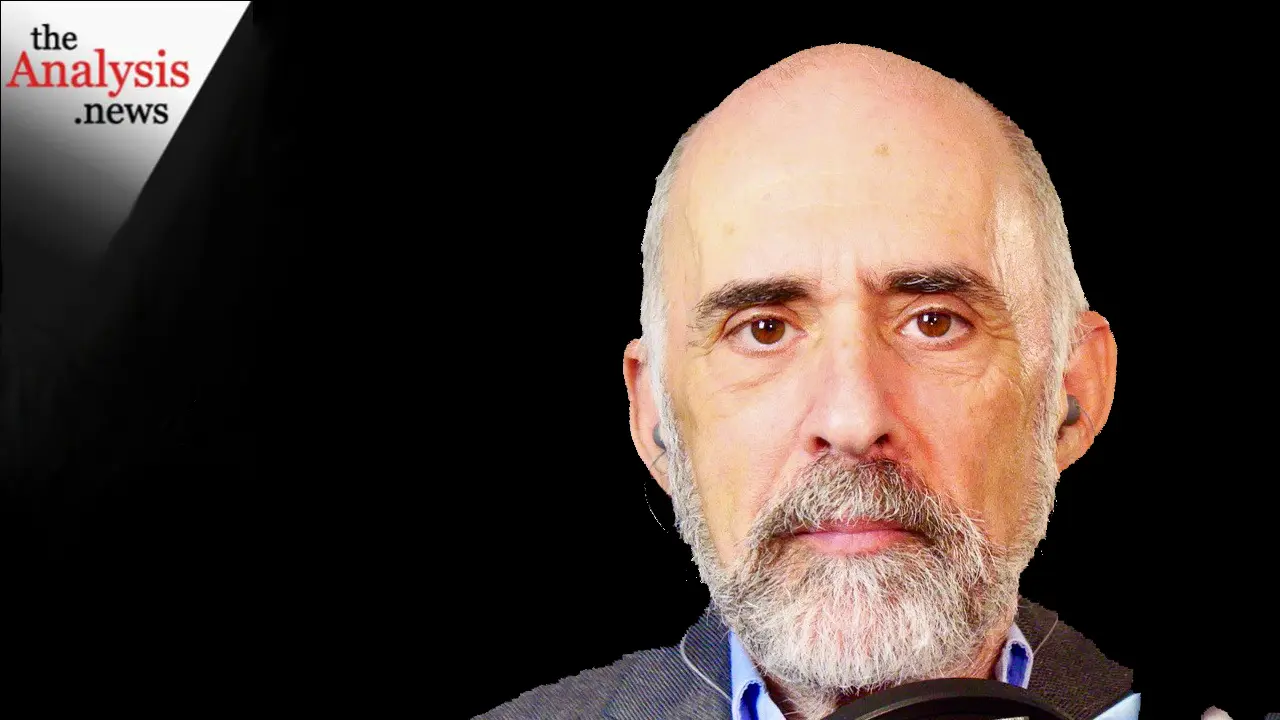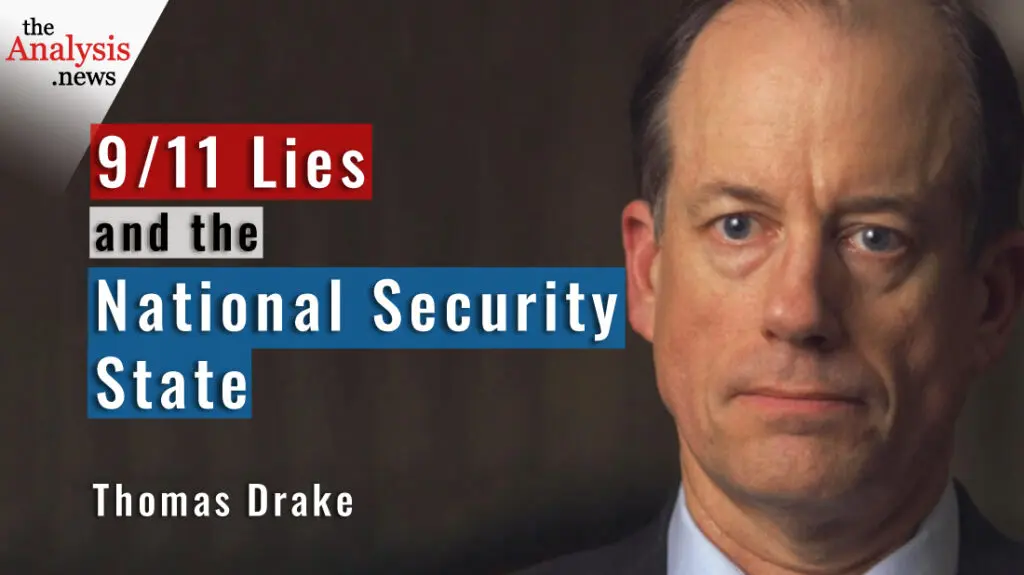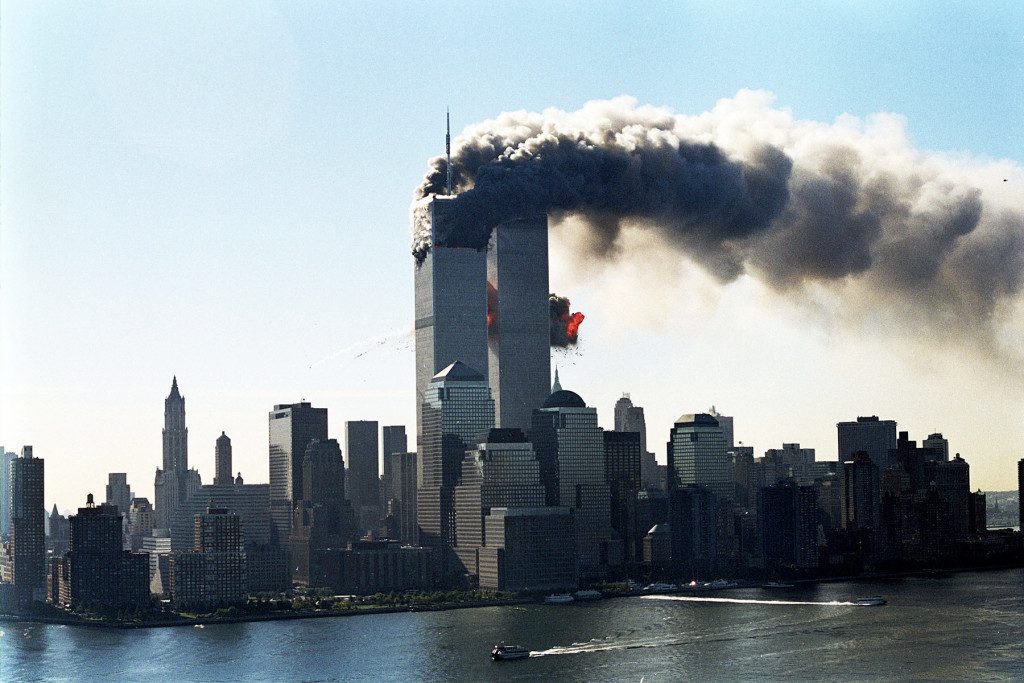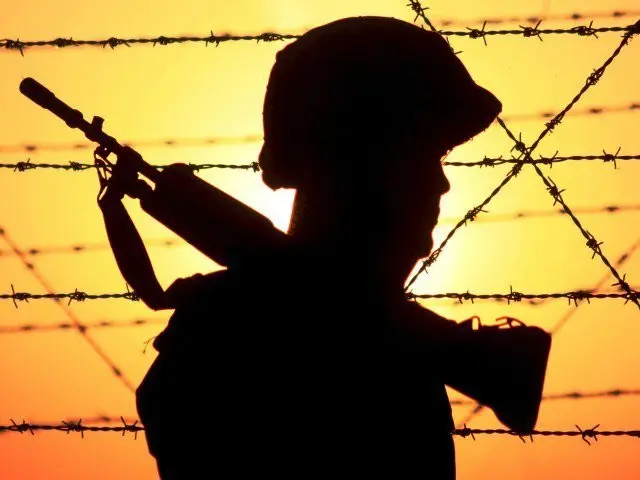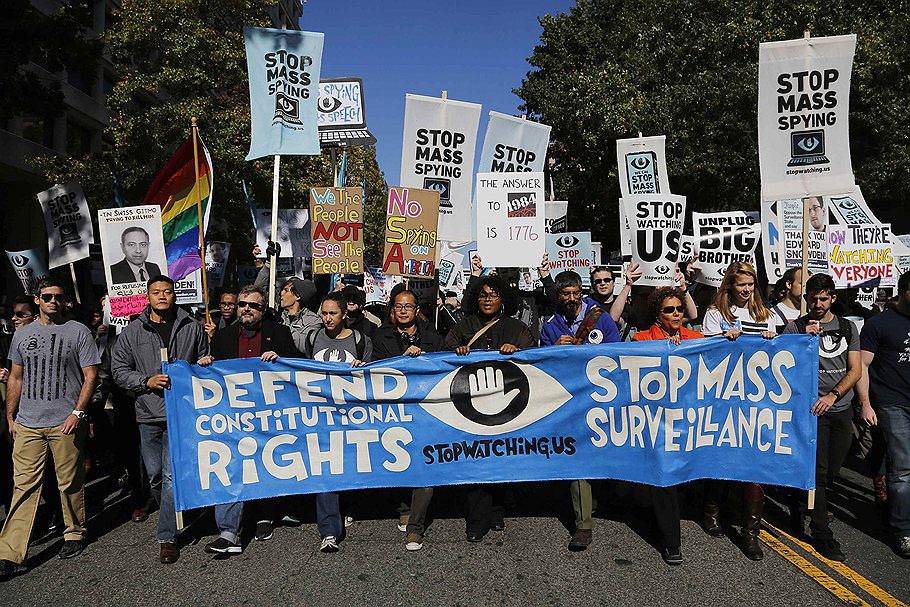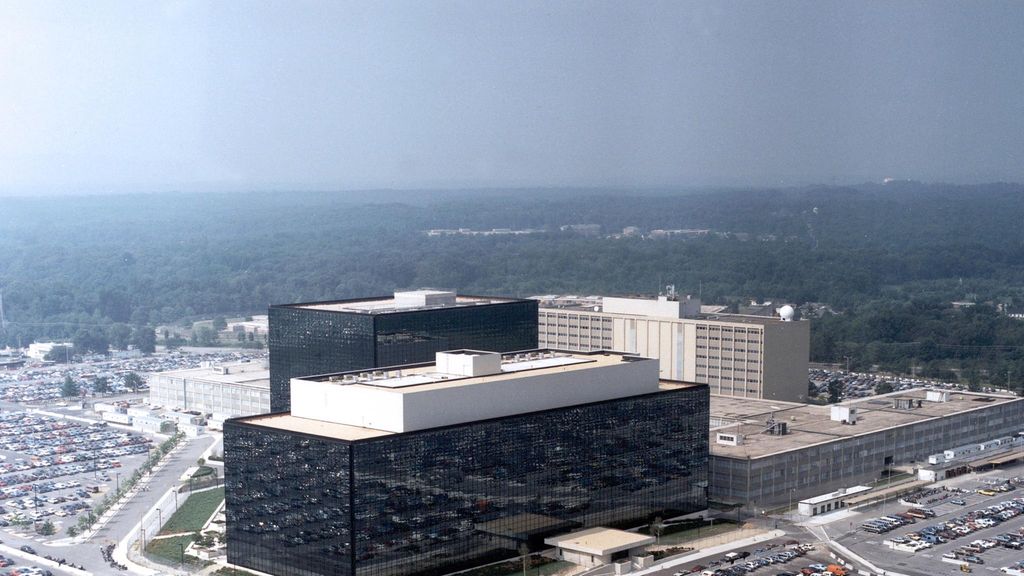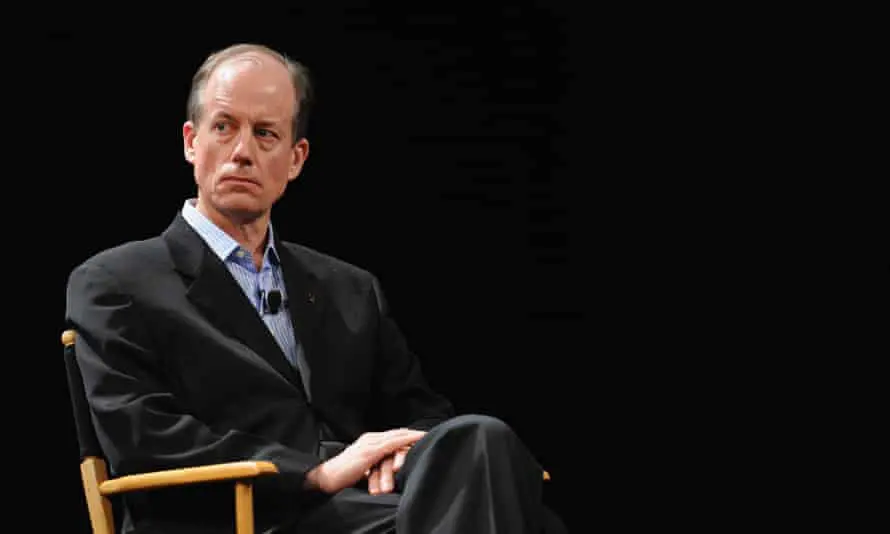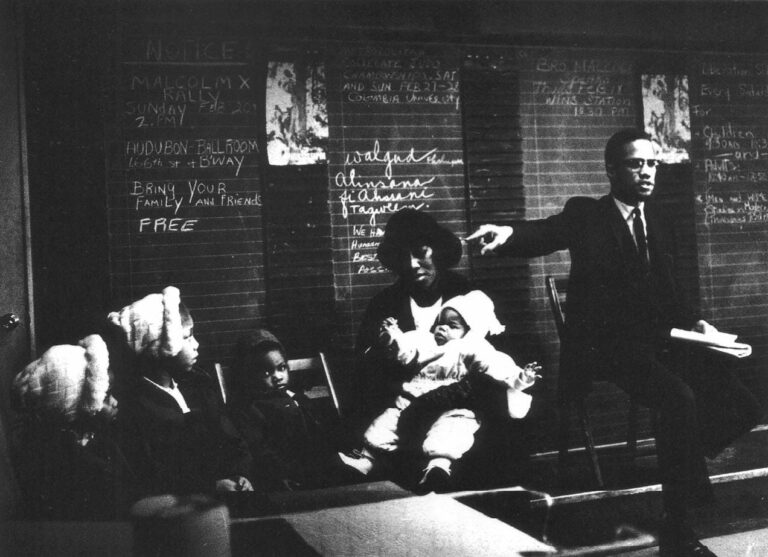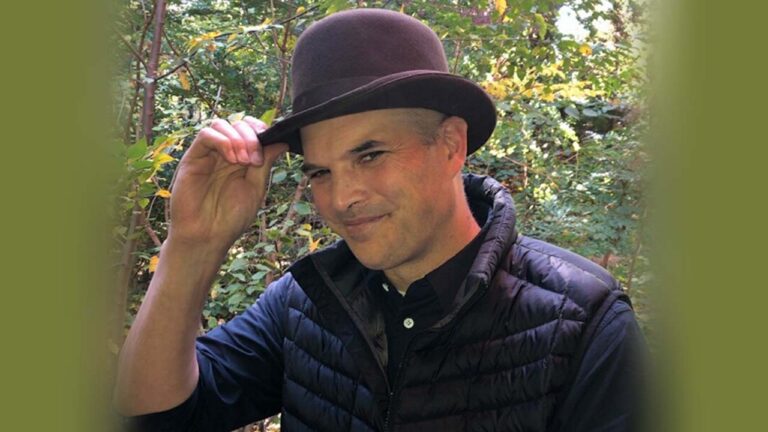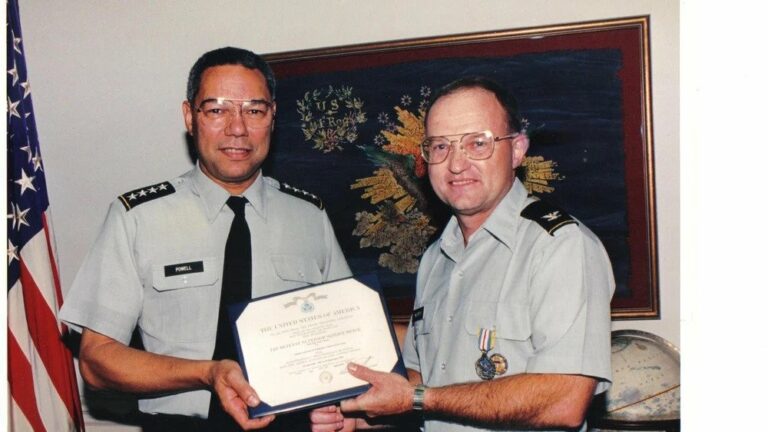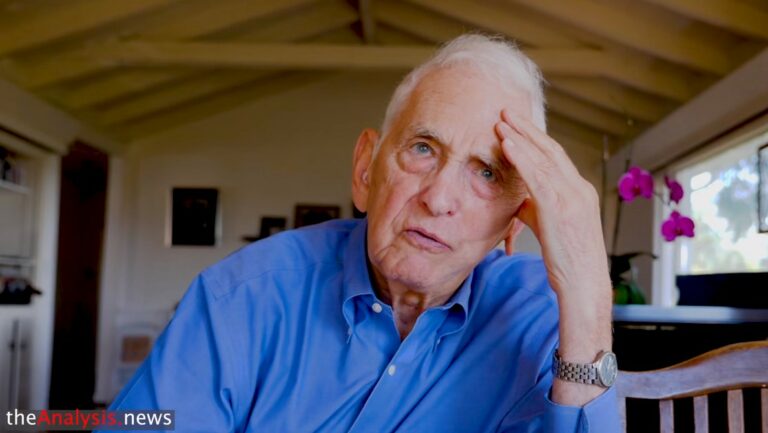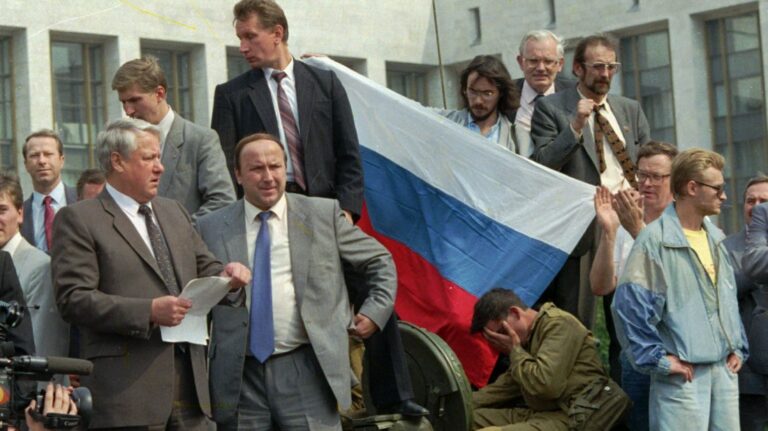Jay discusses his interviews with Sen. Bob Graham, who chaired the joint congressional investigation into the events of 9/11 and was the chair of the Senate Intelligence Committee. Graham outright accused Bush and Cheney of facilitating the 9/11 attacks. Jay also discusses his interviews with former NSA official Thomas Drake, who says intercepts that could have prevented 9/11 were never acted on. Paul Jay was a guest on Law and Disorder, hosted by Michael Smith. This interview was originally recorded on October 18, 2021.
To view more interviews on September 11, 2001, click here.
Michael Steven Smith
This is Law and Disorder.
Heidi Boghosian
Today on Law and Disorder, we interview Paul Jay for the full hour to discuss his investigative work about the attacks of September 11, 2001.
Michael Steven Smith
Paul Jay has been following the 9/11 story for 20 years. He’s read the documents. He’s interviewed the key players in it. He tells a story that I think the listeners will be extremely interested in hearing.
The events of 9/11 were a crushing blow to democracy and the rule of law in our country. The attacks paved the way for two illegal wars. First, the American war against Afghanistan and then Iraq. It opened the way for the national security state to develop expansively and implement a vast surveillance program on American citizens. The attack on the World Trade Center and then on the Pentagon happened 20 years ago and, in retrospect, was a turning point in American and world history.
Law and Disorder radio was launched three years after 9/11. Our mission was to defend both democracy and the rule of law. The 9/11 attacks were a crime against humanity, but instead of treating them as a crime, it was turned into an occasion to launch aggressive and illegal wars.
The Nuremberg trials against the Nazis who started World War II defined aggressive war as the ultimate crime because it held within it all lesser crimes.
In our show today, we examine the new evidence on who is responsible for the attacks on 9/11. The new evidence is a six-year-old FBI [Federal Bureau of Investigation] report released on President [Joe] Biden’s order last month. Biden was told by the families of the victims of 9/11 that unless this report was released, he would not be welcomed at any of the memorial services.
The FBI report demonstrates the complicity of the government of Saudi Arabia in the attacks. It was two Saudi Arabian government officials who helped the first two hijackers when they came to America. They were given money and help to get into flight school. Then, they hijacked an American airline plane and flew it into the Pentagon.
Senator Bob Graham was the Head of the Intelligence Committee that investigated 9/11. Whistleblower Thomas Drake was a top official at the National Security Agency [NSA]. Lawrence Wilkerson was the Chief of Staff for Secretary of State Colin Powell. We speak today in a special one-hour show with journalist Paul Jay, who interviewed all three of them.
Paul Jay is a journalist and a filmmaker. He’s the founder and host of theAnalysis.news, a video and audio current affairs interview and commentary show and website. Jay was the founder of the Real News Network and is currently working on a documentary series with Daniel Ellsberg based on Ellsberg’s book, The Doomsday Machine. Paul Jay, welcome to Law and Disorder.
Paul Jay
Thanks for inviting me.
Heidi Boghosian
We want to talk to you today about the continuing unravelling of the cover-up of the Saudi Arabian government’s involvement with the attacks of 9/11. President Biden was told by the families of the victims of 9/11 that he would be unwelcome at ceremonies honouring the 20th anniversary unless he released a six-year-old FBI investigative report. He did so. What did the report reveal?
Paul Jay
First of all, let me congratulate both of you because most journalists and other people in the media don’t want to even look into what happened on 9/11. Maybe we can talk about why that is. It’s a topic worth discussing in itself. Let me add one more thing for context here about why all this matters. Why are we revisiting the Saudi role, and why, 20 years later, is 9/11 significant?
The answer is probably obvious, but let me state it anyway. I don’t know if there’s been an American war that didn’t begin with a bunch of big lies or to establish pretext for what was almost always, or perhaps always, wars of aggression. You can even go back to the beginnings of the Cold War and the lies that there was a missile gap and the Soviet Union was planning to attack the United States, which was all a fraud. The Gulf of Tonkin, Vietnam, and it goes on from there. More recently and obviously, the lies about weapons of mass destruction in Iraq. American wars begin based on lies.
Now, the other thing, and this goes along with lying, has there ever been a war anybody or any country waged that wasn’t a conspiracy? Countries don’t come out and openly say everything they plan to do or how they plan to engage in the war. So, this idea that there’s something outlandish about conspiracy theories is the most ridiculous thing that’s been out there in politics and media. Of course, there are conspiracies attached to warfare and other things. There are also phony conspiracies. Yes, there are conspiracy theories that have no basis, but what’s a bigger conspiracy than lying about weapons of mass destruction in Iraq when they knew there weren’t any?
There were many people involved in that conspiracy, and it came out that it was a conspiracy. That’s the other side of all of this. There’s no accountability for what happened. Lying the United States into an illegal war, invasion of Iraq. Of course, there was a conspiracy to try to fake evidence and so on. Anywhere from the supposed yellowcake story and Niger trying to lean on the ambassador to lie about what he found. It goes on and on.
So the fact that there was, I think, a conspiracy in the surrounding and at the heart of the events of 9/11, it’s kind of ridiculous to say otherwise. You can’t get a bunch of hijackers coordinating their activities on airplanes without it being a conspiracy. Obviously, I think it goes much further than that, which means the involvement of the Saudi government and the involvement of the White House.
With all that being said, let me talk a bit about this recent reveal, or supposed reveal, in that declassified FBI document. I’m not completely in the weeds on this whole issue as much as I used to be. I’ve read through the recent FBI document, but I may have missed something. I don’t see anything in this FBI document that wasn’t already released by the Joint Congressional Investigation into the events of 9/11 that was released in 2002, Co-Chaired by Senator Bob Graham, who I interviewed. Almost everything that I saw in this recent FBI document, even though it’s dated and based on an interview with somebody who they don’t say, in 2015. When you read the 28 pages that were originally redacted by the White House of the Joint Congressional Investigation, the entire story that I see in this recent FBI release is all there in 2002, and it’s based on FBI documents, which means the FBI had all this stuff years ago.
What sparked this release now is that the 9/11 families are suing the Saudi government. I can understand why they wanted this document declassified. It’s perhaps harder evidence than the conclusions of the Joint Congressional Investigation. Still, it actually doesn’t say anything new about the involvement of Saudi officials in the Saudi Embassy and the Saudi Consulate in Los Angeles.
What’s missing? It is really critical what’s missing. In the media coverage of this recent FBI document, they don’t talk about the most important thing because it’s not in that FBI document, or it is, and it’s redacted. There are a lot of names redacted in this recent release, but the name is Bandar [bin Khalid Al Saud]. Prince Bandar, the Saudi Ambassador to the United States, whose nickname, if everybody remembers, was Bandar Bush. There’s this famous photograph of President Bush and Ambassador Bandar, Prince Bandar, sitting on the terrace of the White House just a few days after 9/11, smoking cigars and, frankly, looking very pleased with themselves.
So, the media coverage of this recent release is ridiculous, at least in the mainstream media that I’ve seen. They don’t hearken back to the conclusions of the Joint Congressional Committee [JCC]. Most importantly is the activity of these couple of people in the Saudi Consulate in Los Angeles that this recent release talks about. Clearly, you put that together with what the Joint Congressional Committee found, and it’s all done under the auspices of Bandar. This isn’t some rogue character.
What the FBI found, it’s mentioned in this recent one, but it’s even more elaborated in the Joint Congressional Committee. These two guys, in particular [Omar al-]Bayoumi, I believe, is one, and the other one is [Osama] Bassan. In all likelihood, according to the FBI and many sources of theirs, they’re agents of the Saudi Intelligence Services, and they’re directly connected with facilitating the 9/11 hijackers, particularly, or specifically, in San Diego. There’s lots of evidence of a direct involvement, but it goes further.
If you go back to the Joint Congressional Committee, there are direct links between Prince Bandar and these guys. One of their wives was receiving, I think, it was two or $3,000 a month from Bandar’s wife. There’s a direct payment in the redacted 28 pages. A direct payment between Bandar’s bank account and one of the two people mentioned in this recent report. I think it was Bassan who got some money directly and then Bassan’s wife. Why the mainstream media isn’t using this as an opportunity to really, not just go after the Saudis, which is honestly so obvious that the Saudis were involved— I guess we’ll get into this, but clearly a direct line of connection to [Dick] Cheney and Bush.
Michael Steven Smith
Paul, you interviewed Senator Bob Graham some years ago. He was in an important position to learn about the Saudi Arabian involvement. Who’s Bob Graham, and what did he tell you?
Paul Jay
Yeah, the real significance of Graham’s interview is less about the Saudis and more about the role of Bush and Cheney. First of all, Senator Bob Graham was the Chair of the Senate Intelligence Committee [SSCI] for many years. He previously was governor of Florida. He’s the Co-Chair of the Joint Congressional investigation into 9/11, the one I was mentioning. They were at this for close to a year. They had millions of dollars and a team of investigators.
So, what I’m about to tell you is what Graham told me. It is not a view of some crackpot individual or even a rational individual. This is a guy who had a whole team of investigators looking into this stuff. He told me what went far beyond what’s in the 28 pages and the official report. I’m not sure why. There are other people who had to sign onto that report, including Nancy Pelosi, by the way, who signed that Joint Congressional Report. People were aware. Now, the report does not talk about the role of Bush and Cheney. It talks about the Saudis, so there’s nothing new. Pelosi and others in leadership, both on the Republican and Democratic sides, all know this stuff. But what he told me isn’t in the report and was an answer to my question.
I said to him in the first series of interviews. I’ve interviewed him about seven or eight times now altogether. The first series of interviews took place in 2010 if my memory serves me right. I said, “Do you think there was a deliberate attempt by President Bush and Vice President Cheney to create a culture within the intelligence agencies of not wanting to know?” I explained to him several examples of intelligence that had been generated prior to 9/11 that, if acted on, could have prevented 9/11.
In fact, Graham actually wrote a book about this, and he had a list of 10 reasons to impeach President Bush. Number one is failing to prevent 9/11. Anyway, his first answer to me was if all the players on a football team are running in the same direction, there’s got to be a coach.
Well, the first time I interviewed him, he was a little bit restrained with how far he would go. But after the declassification of the famous 28 pages— for people that don’t know this story, this congressional report, there were 28 pages the White House insisted on being redacted. It’s in those pages that you get very specific information about the Saudis and the role of Prince Bandar. Well, after a lot of pressure from the 9/11 families— again, they’re the ones that have forced this question out into the open or as open as it is. These 28 pages were declassified by [Barack] Obama, but still with a lot of redactions.
Once they were released, Graham felt a lot freer to talk, and I said to him— I actually played back that part of the interview where we talked about a football team and a coach. I said, “Listen, who’s the coach?” And he says, “President Bush and Vice President Cheney.” Then I said, “You’re saying they deliberately disorganized the intelligence committee?” I may not have used exactly those words, but more or less. He said, “Yes, but it goes further than that.” He said, “They did some acts that directly facilitated the 9/11 attacks, not just suppressed intelligence.” I’ll get into my interview with Thomas Drake about how intelligence got suppressed. Although I asked Graham about this, too. Listen to these examples; they’re outstanding. Outstanding. Outrageous, I guess, is the word. He gave me two or three examples of facilitating.
Number one, this famous memo, [Osama] Bin Laden plans to attack America. That is all that was talked about at the 9/11 hearings. It was read out on television during those hearings. Condoleezza Rice claims they’re a historical document. Ridiculous, after [George] Tenet and Richard Clarke: Tenet, Head of the CIA [Central Intelligence Agency] and Clarke, the anti-terrorism czar. They’re saying their hair was on fire all summer, telling Condoleezza Rice something’s coming. Then she thinks this is a historical document, which is a joke.
Anyway, the document goes to Rice and Bush. Well, Graham tells me that the normal protocol is after the presidential briefing; there’s another briefing that goes out. It’s called the principal’s briefing. It goes to heads of agencies and undersecretaries of certain departments. Any information that’s in the presidential briefing that might require action by any agency shows up in the principal’s briefing. Well, if Bin Laden plans to attack America, you would think it might require some action. So, in the next principals briefing, Graham tells me, it’s omitted. He took this, and he believes that this was a conscious effort to stop, for example, the FAA [Federal Aviation Administration] putting the airports on heightened alert or immigration on higher alert.
Number two, never mind putting immigration on higher alert. Now, by the way, I have all this on camera. You can go to theAnalysis.news. I have all the Graham interviews up there. Graham tells me that far from putting immigration on alert about potential terrorists coming in and potential Saudis, it’s the opposite. Graham tells me that the White House issued orders to immigration not to stop any Saudi citizen from entering the United States. Any! They get in without questioning. One guy, according to Graham, one immigration officer in Miami, stopped the Saudi, which Graham’s investigators concluded was actually meant to be one of the hijackers. He did stop him because he hadn’t read the memo and was actually disciplined for not reading the memo. It goes on.
Number three, people that followed this story— it’s 20 years now, so people probably forget that within just a few days of 9/11, when the airspace of the United States, if memory serves me right, is still closed to at least commercial aircraft, a whole plane-load of Saudis is allowed to leave including many members of the bin Laden family. Graham told me there were many people on that plane that his committee would have wanted to interview as part of their investigation into 9/11 and couldn’t. When they asked the Saudi government to allow them to be interviewed, they were told no. There are other examples Graham told me about, so it wasn’t just a suppression.
Heidi Boghosian
Paul, you interviewed a top official in the National Security Administration, the NSA, and I’m talking about the whistleblower, Tom Drake. What did you learn from him?
Paul Jay
Well, this is the key that unlocks the dynamic of how all this worked. Graham essentially confirmed what Drake told me. Let me put this into a little context because people are sitting here listening to all this. Why would they do all of this? Well, the why is obvious. It was all about preparing American public opinion for the invasion of Iraq. If you go back to the document, the Project for the New American Century [PNAC], which a bunch of neo-cons wrote as a letter to [Bill] Clinton. That group of neo-cons who wrote that document, including [Donald] Rumsfeld and [Paul] Wolfowitz, formed the whole team around the Secretary of Defense. Cheney was a signatory to that document.
In that document, it says two things. This is the key to the why, and then I’ll get to Drake. Number one, the American people, I should say, will not support another major military intervention. Number two, they will not support a massive build-up of the American military, which means a large amount of money increase in the Pentagon budget without— and I’m quoting here, “another Pearl Harbor.”
Now, people who follow this story are well aware of this document, but a lot of people are not. Especially younger people. Well, it’s kind of obvious that 9/11 became Pearl Harbor, and it was the invasion of Iraq. It wasn’t just about Iraq. I think this is the critical issue to understand the Saudi interest here and the American interest. The ultimate prize was regime change in Iran.
In this document and other things that were written by these neo-cons, the agenda was to overthrow Saddam [Hussein] in Iraq and overthrow [Bashar] Assad in Syria. That’s to prepare the conditions for regime change in Iran plus a massive build-up, meaning a massive expenditure on the military-industrial complex.
Alright, so that’s the motivation here, and, of course, the Saudis are as interested in regime change in Iran, or even more than the Americans are or at least may still be, but certainly back then.
Alright, Drake. Drake was one of the American global leading minds in cybersecurity and dealing with digital data. He was hired by the NSA, and ironically, coincidentally, his first day of work was 9/11. In the morning, he goes there, and the attacks take place later that day. Within a week or two, a couple of analysts come to see him. Now, he’s very senior. He’s a Senior Executive who reports directly to the number three person in the leadership of the NSA. So, that’s a very senior position. A couple of analysts came to see him a couple of weeks after the attack. They show him, and they say— this is Drake telling me and again this on camera. We had the whole thing. According to Drake, the NSA had intercepted phone calls between all but three of the hijackers and an Al-Qaeda safe house in Yemen. The entire plot was known. They had recorded and intercepted telephone conversations and knew the whole thing. The analyst came to Drake and said, “This is crazy. We told the leadership of the NSA, and nothing was done with it.” Drake has told me this on camera.
He had actually seen the documentation of the intercept, and then I said to him, “Well, this doesn’t make any sense— the leadership of the NSA. Even if Bush-Cheney had created this culture the way Graham talked about, of not prioritizing terrorism, there’s no way they sit on something like this. They couldn’t take the responsibility.” He said, “Of course not.” He says there was a back channel to Cheney. This is the other kind of secret to understanding how they did this.
George Tenet testified at the 9/11 Commission Hearings that in his first presidential briefing, he told Bush the number one threat to national security was bin Laden and Al-Qaeda. Now, let’s remember on the FBI’s most-wanted list, bin Laden had been number one for the previous five years. He was not some unknown quantity that just showed up on 9/11. The FBI already knew he was involved in the attacks on the Cole Navy ship. Whatever they knew about him was enough to say he was number one on the FBI’s most-wanted list. Tenet confirms he and Al-Qaeda are the number one threat to national security. So, what is one of Bush’s first moves dealing with national security? He demotes the anti-terrorism czar, Richard Clarke.
Richard Clarke, under Clinton, was in a cabinet-level position. He could call the principal— remember the principals. He could call a meeting of the principals on his own. He didn’t have to go through Condoleezza Rice. He gets demoted by Bush, now reports to Condoleezza Rice, and testifies at the 9/11 hearings that he couldn’t get a meeting of the principals called. Even though the quote from him and others, I think it was Clarke’s quote, “My hair was on fire.” There was so much intelligence coming in.
Now, there was a lot of intelligence coming in that Clarke was aware of, but some of the most critical intelligence he wasn’t aware of, for example— and this is a little piece of video, which I keep playing every time I do a report on this. I have to say here that I’ve offered everything I’ve got to mainstream media over and over again with no interest whatsoever, including my interviews with Clarke and Drake. I’m not like an unknown quantity here, even if they think I’ve been working in more independent, marginalized media. I come from CBC in Canada. I was the Executive Producer of the main political affairs debate show daily for 10 years. I’ve made documentary films for all the major broadcasters in the world, so I’m not a completely marginal character. Although I think they have tried to make me so. Anyway, nobody’s been interested in all this stuff I’ve got.
There’s a critical piece of video with Richard Clarke. I don’t know if he was drinking or what. He was interviewed by two University students, and he said the San Diego cell in California the FBI knew about and never told the CIA, and the CIA knew about and never told the FBI. The 9/11 Commission depicted that as if it was like Keystone Cops. They wouldn’t even talk to each other. Clarke says, “I was deliberately bypassed. Neither the CIA nor the FBI told me about the San Diego cell.” He says, “There’s absolutely no way that happens,” and I have him saying this on camera, “without a deliberate, conscious decision not to tell me, the anti-terrorism czar, who’s supposed to be the central repository for all of this information.”
What Drake adds to this is that they did report it to Cheney. What Cheney did was he got all the intelligence agencies to report to him, including military intelligence that also had pre-9/11 intelligence that could have prevented the attacks, and he just sat on it. He would let the information flow in, and he would give no instructions to any of the agencies to act. Quite the contrary, as I said earlier, he actually helped facilitate it, in other words.
Michael Steven Smith
What do you think was known by the intelligence community, specifically that part of the community that reported to Vice President Dick Cheney before the events of 9/11? Is there evidence that he manipulated the intelligence and set up a backchannel?
Paul Jay
Let me answer, first of all, by saying what I know. I know from the people I’ve interviewed, most importantly, Graham and Thomas Drake, and to some extent also John Kiriakou and some others, but those two are the key. They’re awfully credible sources. As I said earlier, Graham was the Chair of the Senate Intelligence Committee and Drake a Senior Executive at the NSA. So, I don’t have any ability to have my own investigators. I can’t subpoena anybody. What I can say is what I’ve been told by them, and they say, without doubt, that’s what happened.
As I said earlier, Richard Clarke is on the record saying that he was bypassed on critical intelligence, and Drake says it’s reported to Cheney. The inference from Clarke is that it was reported to Cheney. One of the arguments that’s given about why the administration didn’t focus on terrorism and why, even after being told by George Tenet that terrorism was the number one threat to national security, and it’s this de-prioritization, is the reason that there was such chaos amongst the intelligence agencies.
For example, there’s this Coleen Rowley story. If people remember, she’s an FBI agent, I think, in Minnesota. She gets a phone call from a flight school, and the guy who teaches says, “I’ve got this guy from the Middle East, and he wants to learn how to take off, but he doesn’t want to know how to land.” So, she finds this suspicious. She sends this to FBI headquarters. Then she asks for a warrant to go into the guy’s computer, and it’s denied. She later became one of Time Magazine’s People of the Year as a whistleblower. She’s completely credible. This is what had been explained as this is part of the FBI and others taking the lead from Bush-Cheney in deprioritizing terrorism and prioritizing big state actors, meaning Russia and China.
There’s always this talk that Condoleezza Rice didn’t focus on this because her background was about the Soviet Union and Russia, and that’s what they were concerned about. They just didn’t think terrorism was a big deal and all this. It’s such obvious B.S., because we know now from many sources, including Richard Clarke’s book, [Robert] Gates book and others, that their priority wasn’t Russia and China. Their priority was Iraq from day one. Within days of the attack of 9/11, Bush is telling both the CIA and the Pentagon, “Get ready for Iraq. Focus on Iraq.” It was never even about Afghanistan. That became a requirement to attack and invade Afghanistan when it became obvious to everybody that bin Laden had operated out of Afghanistan. That’s a whole other story, which I can get into.
As you know, I made a film about Afghanistan because there’s all this talk about how the Taliban wouldn’t hand over bin Laden, and that’s the reason for invading Afghanistan, which is actually not true. If you want to know more, I’ve actually interviewed a member of the Central Council of Taliban; they were ready to hand over bin Laden. So, the evidence of the backchannel is based on Drake, Graham. It’s based on Richard Clarke saying it was bypassed on critical intelligence, and there’s a certain logic. I mean, is it really possible?
This is where you get a need for an inquiry because what I’m about to say is not hard evidence, but, God, a lot of people have been convicted of murder on a lot less circumstantial evidence than what I’m about to say. Is it possible that all the intelligence agencies that had so much pre-9/11 intelligence that could have stopped the attacks and they just sat on it? I mean, is that possible? If it didn’t go to Richard Clarke, and he claims it didn’t, all of them decided, oh, I’m not going to tell.
There’s one of the military intelligence— this is a report Jason Leopold worked on. I released on video a lot of his reports. The Joint Military Intelligence [JMI] was asked to model in early 2001, late 2000, what might another terrorist attack look like? They modelled— get this. They modelled: planes get hijacked and flown into the World Trade Center, and the buildings fall down. They modelled this before 9/11, did a PowerPoint explaining their modelling, and they gave that up the chain of command.
Now, when the leadership of the military intelligence was called before the Joint Congressional Committee and asked, “Did you have anything that indicated that these attacks might take place?” They said, “No.” So, the guy who led the military intelligence team was furious, and he made a report to the Inspector General of the Army saying, “It’s not true. We modelled what happened, and we had a PowerPoint.” He sent the PowerPoint to the Inspector General.
Well, the Inspector General comes back and says, “Oh, the leadership of intelligence did nothing inappropriate.” So, this guy is furious, and he leaked the stuff to Jason Leopold, and I think the other guy’s name was Jeffrey Kaye. The guy from military intelligence makes a FOIA [Freedom of Information] request to the Inspector General to get his PowerPoint, and he gets it. You can go to my site. I have it there. Jason had the actual Inspector General’s report with a stamp on his PowerPoint explaining how planes were going to hit the buildings and the buildings fall down. So, is it really possible that so many intelligence agencies just sit on this information without passing it up somewhere? It’s just impossible.
So, yeah, it’s kind of a supposition, but I think it’s enough of a supposition that there still needs to be an independent inquiry into what really happened because the truth of this has not come out. As I say, this isn’t just a problem of some history; this is a problem of such deliberate lying about 9/11 and deliberate lying about the Iraq war. Are we going to see it again? This time, if Trump had had his way, in fact, if Bush-Cheney hadn’t been blocked by the Pentagon, in all likelihood, we would have seen another example, except this time they’ll try to pin it on the Iranians.
Heidi Boghosian
You interviewed retired Colonel Lawrence Wilkerson, who was Secretary of State Colin Powell’s Chief of Staff prior to 9/11. What did you learn from Wilkerson? How does he feel about the speech Powell gave at the United Nations promoting the attack on Iraq?
Paul Jay
Well, first of all, he feels culpability himself. He went along with what he had, by then, come to know wasn’t true: Powell’s thing about Scud missiles surrounding Beirut [ED: Baghdad] armed with biological weapons pointed at Israel. He knew that a lot of what Powell said was being manufactured. And it’s not one of, but the greatest regret of his life that he didn’t quit before that speech.
Let me add a little note of my own. It’s my belief that if they actually believed any of what they said at the U.N., they wouldn’t have invaded. You don’t invade a country that has Scud missiles with biological weapons aimed at Israel. That’s a pretty good deterrent. You don’t risk it. Also, you look at the pictures of American soldiers driving across Iraq towards Baghdad; almost none are wearing masks. Anyway, we know the whole thing was a big lie.
Wilkerson, he once said, and he said it to me, and I think he said it elsewhere, “The people who work for Powell, Bush, Cheney, and Rumsfeld are war criminals.” He said, “If they go to jail, I probably need to go with them.”
I’ve interviewed him many times now, and I believe he’s sincere in this. The other most important thing about how sincere he is, he’s almost the only one and maybe the only one, but certainly one of the only ones who didn’t cash in on all this. All the other people are millionaires, multi-millionaires. They all got jobs in the military-industrial complex. They’re fabulously wealthy, and he certainly could have been. All he had to do was keep his mouth shut. He could have even just resigned and not said anything, but instead, he’s become one of the harshest critics of U.S. foreign policy and of the military-industrial complex.
I know he lives quite modestly at a professor’s salary. He got a job teaching afterwards, but nothing compared to what he could have been, I’m sure. He’s very smart and understands geopolitics. He easily could have been on the board of some big arms manufacturer. Basically, what he said, the essence of it, is how banal the whole motivation was. There was even less about the geopolitics of regime change in Iraq, Syria, and Iran, which it was, but it was more about money-making. We know about Dick Cheney and his ties to Halliburton. He was the CEO of Halliburton. He still owns stock in a Blind Trust, supposedly after he became Vice President, but Halliburton got a no-bid $7 billion contract days prior to the invasion of Iraq.
In fact, there’s a woman named [Bunnatine] Bunny Greenhouse who oversaw contracts for the Pentagon. A civilian looking for things that were wrong, and she actually reported to the Inspector General. Why was this in a no-bid contract? Because there are at least three or four other companies that could have done the same work, which is restructuring the Iraqi oil industry after the invasion. I mean, that’s what they were focused on, grabbing the oil. She also reported that this contract was being directly steered and navigated by Rumsfeld’s office, which was completely out of the norm. Normally, it would come out of some normal Pentagon acquisition office. She was demoted. She was put into some job where she had absolutely nothing to do. She never got promoted again and never got a wage increase. She sued the Pentagon later and won. She actually won almost a million dollars in a lawsuit over the Cheney-Halliburton contract. It was about money, and it’s always about more than one thing. It’s not like geopolitics doesn’t matter, but even geopolitics is mostly about money-making, and that’s Wilkerson’s main theme. Of course, in talking to him and [Daniel] Ellsberg, who I’ve been talking to, we also learn about the whole nuclear weapons plan, which is mostly about money too, except there they can end life on earth.
Heidi Boghosian
Do you believe the 9/11 attack was a pivotal point in U.S. and world history?
Paul Jay
Yes. In one obvious way, it was. As I said, it became the rationale for a massive expenditure in the Pentagon and massive growth in the National Security State. From the Patriot Act to the NSA spying on everyone, it became a justification for unmitigated spying on Americans, and certainly everyone else in the world too. The kind of safeguards that had existed, everything gets thrown out. Torture is allowable, and, of course, the most important thing is the invasion of Afghanistan and Iraq. Hundreds of thousands of people died. Millions of people were displaced. So, one of the great war crimes since World War II, maybe the greatest war crime since World War II— well, I don’t know. The Vietnam War, I guess, is the biggest war crime, but after Vietnam, you’ve got Iraq. It created, and not just in the United States, it created a rationale for this great strengthening of the National Security States in most states, if not all.
But the other thing it did, which doesn’t get talked about enough, is that the media was intimidated. I think it’s one of the most important points of 9/11. The media has been intimidated in looking into what really happened on 9/11. The media was intimidated in playing ball in the lead-up to the war in Iraq.
A quote from Dan Rather, the former CBS anchor— unfortunately, he said this to the BBC, and he didn’t say it in the U.S.. But he said, “After 9/11, if you critique the White House, it was like,” and I’m quoting him, I think, pretty directly, “It’s like having a flaming tire of patriotism put around your neck.” This is using an example of what happened in the South African townships. If they thought somebody was working with the police, they would set a flaming tire around somebody’s neck. That was the ability of the White House.
Now, President Bush, prior to 9/11, there was a television show on ABC Network T.V. called That’s My Bush. It was a parody of the Bush family directly. He was held in such contempt that you could actually have a mainstream T.V. show ridiculing the Bush family. Well, after 9/11, all of a sudden, he’s a hero. That show goes off the air, and the media plays ball. Now, I’m not saying there’s no media that wasn’t critical. I would give McClatchy some props— is that the word? They didn’t buy the whole weapons of mass destruction argument, but we know the New York Times did, and almost the entire network television did. It hasn’t changed that much. 9/11 changed the media culture to a large extent. It’s not that they were always fantastic. Look at how much trouble and difficulty it was to get the Pentagon Papers out, but it did get out. The Pentagon Papers, Ellsberg’s thing. Finally, the newspapers had the guts to do it, but it took a hell of a long time for the mainstream media to deal with the lies about the Iraq war, and they still haven’t dealt with the lies of 9/11.
So, yeah, it’s a very pivotal event in many ways. But let me focus on that, is that all the wars, every one of them, the whole history of the national security state, of U.S. militarism, is mostly a fabric of lies. People just don’t get it. In the schools, of course, it’s never really exposed, and the media that does it like yours, mine, or some others that do get at this stuff, we get so marginalized that they don’t really care that we can poke through the fabric of Americanism. Once in a while, events tear the shredding of Americanism, but it doesn’t take long for the media to close ranks again.
Michael Steven Smith
Paul Jay, thank you very much. We truly appreciate your fine investigative reporting. This is what’s probably the biggest story of the last part of our lifetime.
Paul Jay
Thanks, Michael. Yeah, you can find me at theAnalysis.news, and it needs the, as in theAnalysis.news.
Michael Steven Smith
People will go to theAnalysis.news to fill in what you haven’t had a chance to tell us. Thank you so much, Paul Jay, for your extremely important work. We truly appreciate you being on Law and Disorder.
Heidi Boghosian
Thank you, Paul.
Paul Jay
Thanks very much.
Michael Steven Smith
If you have any comments or questions about this segment or any others, please visit us at lawanddisorder.org. One word, law and disorder dot O-R-G.
Podcast: Play in new window | Download | Embed
Subscribe Apple Podcasts | Spotify | Android | iHeartRadio | Blubrry | TuneIn | Deezer | RSS
Never miss another story
Subscribe to theAnalysis.news – Newsletter
